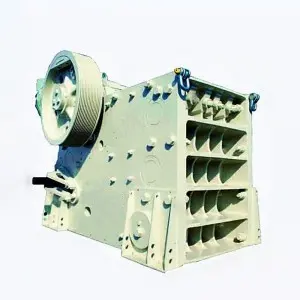The lubrication system is an important guarantee for the normal operation of the jaw crusher. It is like the blood circulation system of the equipment, providing necessary lubrication and protection for all moving parts. However, in the actual operation process, oil leakage and blockage problems occur frequently, directly affecting the stable operation and service life of the equipment. Understanding the handling methods for these common faults is of great significance for maintaining the good condition of the equipment.
Oil leakage is one of the most common faults in lubrication systems. When oil leakage is detected in the equipment, the first thing to do is to remain calm and not stop the machine immediately. Instead, observe the location and extent of the oil leakage first. Slight oil leakage may not require immediate treatment, but obvious dripping or flowing oil needs to be paid attention to promptly. Identifying the source of oil leakage is a crucial step. Common oil leakage points include oil pipe joints, seals, and fuel tank welds, etc.
For oil leakage caused by loose oil pipe joints, the treatment method is to first clean the joint area and then use appropriate tools to tighten it. Be careful not to apply excessive force to avoid damaging the threads. If the sealing ring at the joint ages or gets damaged, a new sealing part needs to be replaced. When replacing, a sealing ring of the appropriate size should be selected and the installation position should be ensured to be correct.
Seal failure is another common cause of oil leakage. After long-term use, the sealing material will naturally age and lose its elasticity, resulting in a decline in sealing effect. The treatment method is to regularly inspect the condition of the sealing parts. When hardening, cracks or deformation are found, they should be replaced in time. Before installing the new seal, carefully clean the sealing groove to ensure that there are no residues that may affect the sealing effect.
The problem of blockage also needs to be taken seriously. The accumulation of impurities in the lubrication system can lead to poor oil flow and affect the lubrication effect. When abnormal oil pressure or insufficient oil supply to the lubrication points is detected, it is very likely that a blockage has occurred. The first step in dealing with blockages is to locate the blockage, which can be determined by inspecting the oil circuit in sections.
Oil filter clogging is one of the common problems. Regularly replacing or cleaning the oil filter is an effective way to prevent clogging. When an increase in the pressure difference of the oil filter is found, it should be dealt with promptly. When cleaning the oil filter, use an appropriate cleaning agent to thoroughly remove impurities adhering to the filter screen and ensure that the pores of the filter screen are unobstructed.
Oil quality issues may also cause system failures. Lubricating oil will gradually age during use, generating gum and sediment, which can clog the oil passage. Regular replacement of lubricating oil is a necessary maintenance measure. When changing the oil, the oil tank should be thoroughly cleaned to remove the impurities deposited at the bottom. It is also very important to choose lubricating oil of the appropriate viscosity grade. Oil that is too viscous can easily lead to poor flow.
The air in the oil circuit can also affect the normal operation of the lubrication system. When air enters the system, air resistance will occur, resulting in unstable fuel supply. The method to expel air is to start the lubrication pump and open the air release valves on the oil circuit one by one until the oil flowing out no longer contains bubbles.
Prevention is better than cure. Establishing a regular inspection system is the best way to avoid lubrication system failures. During daily operations, it is necessary to pay attention to observing the reading of the oil pressure gauge, listen to the running sound of the lubrication pump, and check whether each lubrication point is discharging oil normally. These simple checks can help identify problems early and prevent minor malfunctions from escalating into major ones.
A clean working environment can also effectively reduce lubrication system failures. Dust and debris entering the lubrication system is one of the main causes of blockage. Keeping the surrounding environment of the equipment clean and tidy and regularly cleaning the accumulated dust on the surface of the equipment can significantly reduce the risk of impurities entering the system.
It is also very important to keep records and maintain history. Detailed records of the time, content and problems discovered during each maintenance can help analyze the patterns of faults, predict possible issues, and thus take preventive maintenance measures.
In conclusion, dealing with faults in the lubrication system of a jaw crusher requires patience and meticulousness. Regular inspection, timely maintenance and correct operation can minimize the occurrence of faults and ensure that the equipment is always in good condition. Remember, good lubrication is not only necessary for the normal operation of equipment, but also an important guarantee for extending its service life.

Post time: Sep-16-2025
